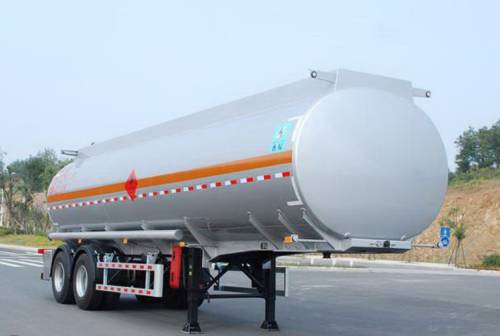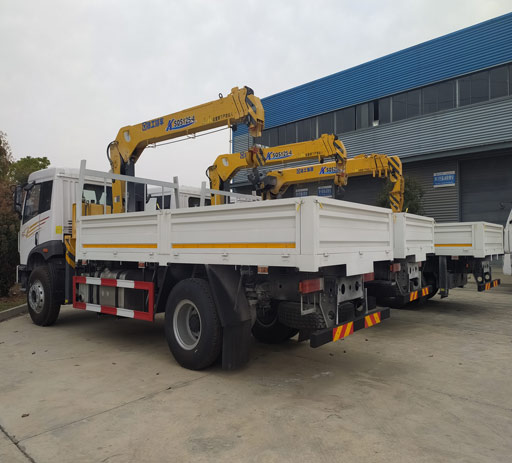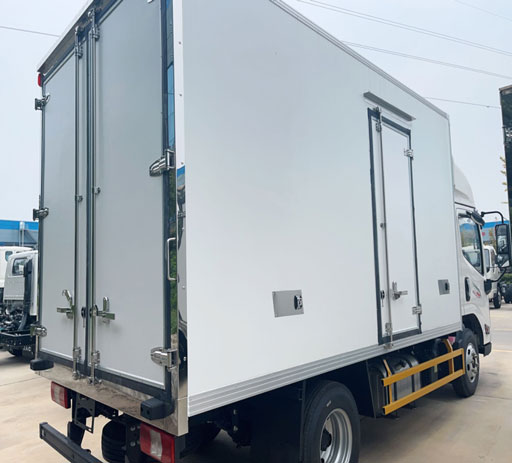Understanding Hook Dumpster Trucks: Everything You Need to Know
Hook dumpster trucks have become an essential part of waste management and construction industries. Their unique design and functionality allow them to efficiently transport large volumes of waste, making them better suited for various tasks than regular garbage trucks. In this article, we will explore the features, benefits, and practical uses of hook dumpster trucks, providing insights into their operational mechanics and tips for effectively utilizing these vehicles.
What is a Hook Dumpster Truck?
A hook dumpster truck is a specialized vehicle designed to transport large dumpsters or container units. These trucks are equipped with a hook lift system, allowing operators to load and unload dumpsters quickly and safely. The versatility of hook dumpster trucks makes them popular in various industries, including construction, landscaping, and waste management.
Components of a Hook Dumpster Truck
- Hook Lift System: The primary mechanism that enables the loading and unloading of dumpsters.
- Chassis: The base frame that supports the weight of the truck and its cargo.
- Container/Dumpster: The removable unit where waste or materials are stored.
- Hydraulic System: Powers the hook lift and ensures smooth operation during loading and unloading.
Benefits of Using Hook Dumpster Trucks
1. Versatility
One of the standout features of hook dumpster trucks is their versatility. They can cater to various industries, including:
- Construction: Ideal for transporting construction debris and materials.
- Residential: Suitable for home renovations or large landscaping projects.
- Commercial: Efficient in managing waste from large businesses and events.
2. Efficiency in Waste Management
Hook dumpster trucks allow for quick loading and unloading, significantly speeding up waste management processes. The hydraulic hook lift system enables operators to pick up and drop off containers without needing additional equipment.
3. Safety Features
Modern hook dumpster trucks come equipped with safety mechanisms that ensure the security of both the operator and the environment. Features include:
- Stabilizers: Prevent tipping during loading and unloading.
- Cameras: Offering a clear view during the operation.
- Weight Sensors: To avoid overloading the truck.
Choosing the Right Hook Dumpster Truck for Your Needs
Consider Your Load Requirements
Assess the types and volumes of materials you’ll be transporting. Hook dumpster trucks come in various sizes, with different load capacities. Choosing the right size will enhance efficiency and minimize operational costs.
Evaluate Your Budget
Hook dumpster trucks can be an investment. Determine your budget for purchasing or leasing, and compare costs between different models and manufacturers.
Look for Additional Features
Some trucks come with added functionalities such as:
- Automatic Loading: For a more streamlined operation.
- Telematics: For tracking and performance analysis.
Brand Reputation and Reviews
Research brands and read customer reviews to get insights into the reliability and performance of different hook dumpster truck models. A trusted brand may offer better service and durability over time.

Operational Tips for Hook Dumpster Trucks
1. Regular Maintenance
Ensure your hook dumpster truck is well-maintained. Regular inspections of the hydraulic system, tires, and brakes will prolong the life of the truck and maintain operational efficiency.
2. Proper Loading Techniques
Distributing weight evenly in the dumpster will enhance driving safety and prevent accidents. Avoid overloading to ensure optimal performance and avoid fines.
3. Training Operators
Invest in comprehensive training for operators to maximize efficiency and safety. Proper training will minimize the risk of accidents and ensure compliance with local regulations.
Understanding Different Sizes and Capacities of Hook Dumpsters
Hook dumpsters come in various sizes, ranging from small 10-yard containers to larger 40-yard units. Below is a comparison table to help you understand the capacities and suitable applications for each size:
| Size (Yards) | Typical Uses | Volume (Cubic Feet) |
|---|---|---|
| 10 | Residential cleanouts, small renovations | 70 |
| 20 | Medium renovations, larger cleanouts | 140 |
| 30 | Construction sites, commercial use | 210 |
| 40 | Large construction projects, warehouse cleanouts | 280 |
Common Applications of Hook Dumpster Trucks
1. Construction Sites
Construction companies use hook dumpster trucks to manage debris and materials efficiently. The ability to haul multiple dumpsters to and from the site enhances productivity.
2. Landscaping Projects
In landscaping, hook dumpsters are often used to collect yard waste, soil, and other debris, making cleanup faster and more manageable.
3. Events and Festivals

During large events, hook dumpster trucks facilitate waste management by providing easy access to disposal containers for attendees, helping keep the area tidy.
Environmental Impact of Hook Dumpster Trucks
1. Sustainable Waste Management
By efficiently transporting waste to processing facilities, hook dumpster trucks support sustainable waste management practices. They help minimize landfill use by ensuring recyclables and compostables are processed properly.
2. Compliance with Regulations
Using a hook dumpster truck that complies with local waste management regulations can help businesses avoid fines and promote environmentally-friendly practices.
Cost Considerations for Hook Dumpster Trucks
Initial Purchase or Lease Costs
Investing in a hook dumpster truck can vary in cost depending on size, brand, and additional features. Evaluate whether purchasing outright or leasing would be more advantageous for your situation.
Maintenance and Operating Expenses
In addition to the initial costs, consider ongoing expenses such as fuel, maintenance, insurance, and registration fees. Budgeting for these will ensure that you keep your operations running smoothly.
Potential for Revenue Generation
By using hook dumpster trucks for waste management services, businesses can generate additional revenue, either through providing services to clients or by offering dumpster rentals for events and construction projects.
FAQ Section
1. What is the average lifespan of a hook dumpster truck?
The average lifespan of a well-maintained hook dumpster truck can range from 10 to 15 years, depending on usage and maintenance practices.
2. How much weight can a hook dumpster truck carry?
Most hook dumpster trucks can handle anywhere from 10,000 to 30,000 pounds, depending on the model and specifications.
3. Can I use a hook dumpster truck for regular garbage collection?
While hook dumpster trucks are primarily designed for transporting large containers, they can be adapted for regular waste collection, though conventional garbage trucks may be more efficient for that purpose.
4. Are there specific permits required to operate a hook dumpster truck?
Yes, operating a hook dumpster truck may require special permits or licenses depending on local regulations. Always check with your local authorities to ensure compliance.
5. How do I choose the right dumpster size for my project?
Assess the volume of waste you expect to generate and consider a size that will accommodate all materials without risking overloading. Refer to the table above for guidance.

6. What maintenance does a hook dumpster truck require?
Regular maintenance should include inspections of the hydraulic system, brakes, tires, and overall vehicle condition. Following the manufacturer’s guidelines will ensure optimal performance.
